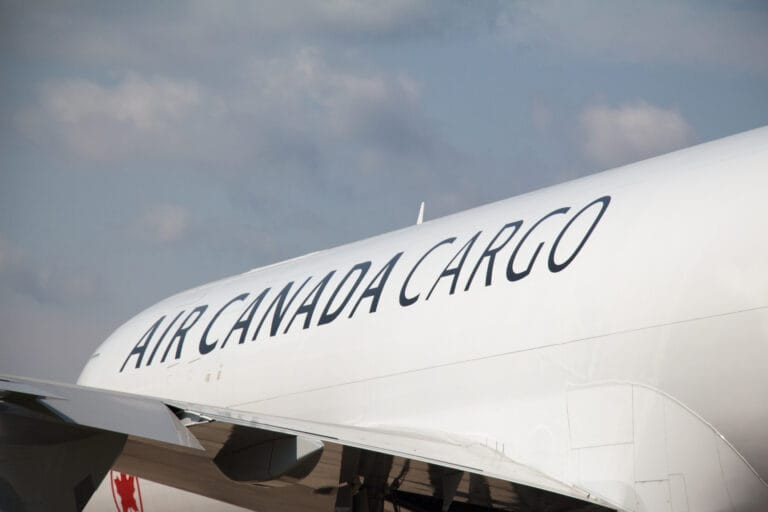Air Canada Cargo delivered a stable performance in the second quarter of 2025, contributing to the airline’s broader financial results during a period marked by softening demand across the global airfreight sector.
In its quarterly earnings, Air Canada noted that cargo operations, alongside its vacations and loyalty programme divisions, played a role in supporting total revenue, which reached US$5.63 billion—up 2 percent from the same period last year.
President and chief executive officer Michael Rousseau described the cargo division as “a key pillar of our diversified business,” highlighting its continued relevance despite headwinds across the freight industry.
Air Canada currently operates six Boeing 767 freighter aircraft, converted from passenger service. These wide-body freighters serve scheduled and charter routes and have become a central part of the airline’s post-pandemic cargo strategy.
While specific revenue figures for the cargo segment were not disclosed, financial statements indicate that operating costs associated with freighter activity (excluding fuel) rose modestly to US$42 million in the second quarter, compared with US$38 million during the same period in 2024.
For the first half of 2025, freighter-related costs totalled US$84 million, up from US$73 million the previous year. The company classifies these expenses separately from its core passenger operations, noting that freighters do not generate available seat miles (ASM), the standard measure used in passenger airline performance.
The cost increases reflect ongoing activity rather than any significant expansion. Volumes across the global airfreight market have remained under pressure this year, as capacity recovers and shipping demand moderates following the post-pandemic boom. Nevertheless, Air Canada Cargo appears to be maintaining a consistent operational pace, helped by targeted services in sectors such as e-commerce, automotive parts and pharmaceuticals.
Strategically, the airline continues to position cargo as a long-term complement to its passenger network. In early 2025, Mark Galardo—formerly head of network planning—was appointed executive vice-president and president of cargo, a role that includes oversight of commercial operations for the freighter fleet.
The airline’s cautious approach comes as jet fuel prices edge higher, with Air Canada revising its full-year assumption to C$0.92 per litre, up from its previous estimate of C$0.88. In this context, a disciplined, cost-managed cargo operation offers useful diversification, but is unlikely to drive headline growth.




